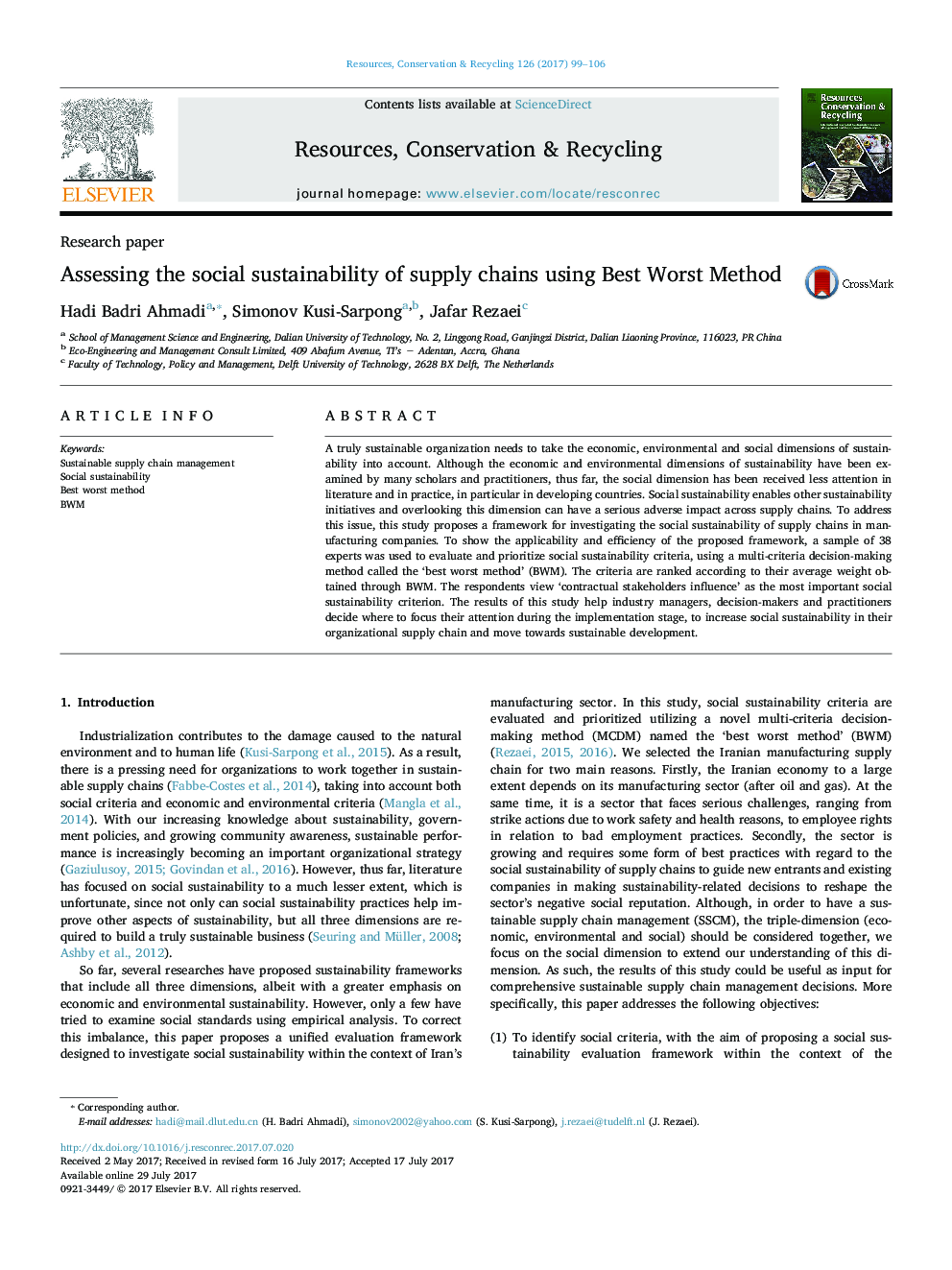| کد مقاله | کد نشریه | سال انتشار | مقاله انگلیسی | نسخه تمام متن |
|---|---|---|---|---|
| 5118626 | 1485666 | 2017 | 8 صفحه PDF | دانلود رایگان |
- A framework for supply chain social sustainability in manufacturing is proposed.
- A sample of 38 experts is used to evaluate and prioritize the social criteria.
- Best worst method (BWM) is used to evaluate the social sustainability criteria.
- 'Contractual stakeholders influence' is the most important social criterion.
A truly sustainable organization needs to take the economic, environmental and social dimensions of sustainability into account. Although the economic and environmental dimensions of sustainability have been examined by many scholars and practitioners, thus far, the social dimension has been received less attention in literature and in practice, in particular in developing countries. Social sustainability enables other sustainability initiatives and overlooking this dimension can have a serious adverse impact across supply chains. To address this issue, this study proposes a framework for investigating the social sustainability of supply chains in manufacturing companies. To show the applicability and efficiency of the proposed framework, a sample of 38 experts was used to evaluate and prioritize social sustainability criteria, using a multi-criteria decision-making method called the 'best worst method' (BWM). The criteria are ranked according to their average weight obtained through BWM. The respondents view 'contractual stakeholders influence' as the most important social sustainability criterion. The results of this study help industry managers, decision-makers and practitioners decide where to focus their attention during the implementation stage, to increase social sustainability in their organizational supply chain and move towards sustainable development.
Journal: Resources, Conservation and Recycling - Volume 126, November 2017, Pages 99-106
